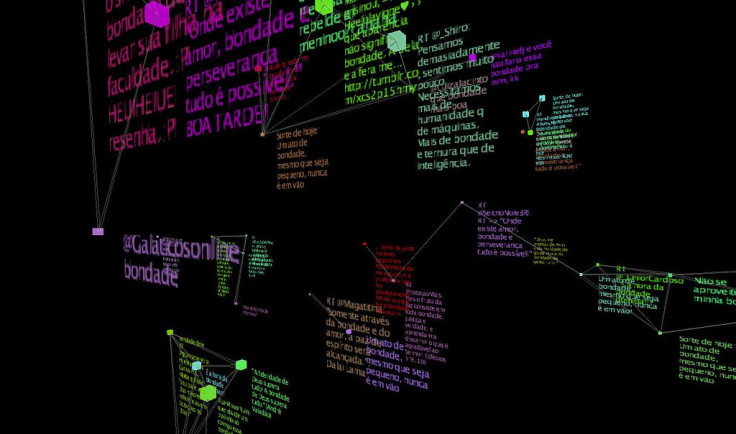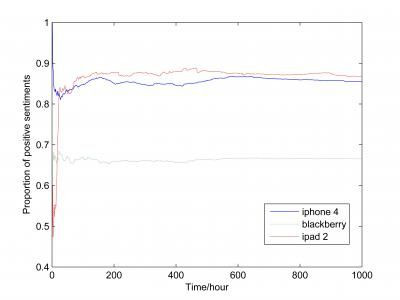How Twitter Shapes Public Opinion: Early Leads By Big Groups Usually Win, Especially In Politics

Today, scientists and strategic communicators understand that public opinion tends to form quickly on emerging issues of social and political import. Yet those dominant public opinions appear only after an intense bit of volatility, and are increasingly influenced — in Twitter, and elsewhere — by larger and larger groups pushing for greater power.
As French jets pounded Libya a few years ago this month, NATO leaders had already won the most important aspect of the campaign to oust Moammar Gadhafi — the battle for public opinion.
In the hours leading to the aerial invasion, U.S. and European war planners prepared in the usual ways. A Navy ship steamed into the Mediterranean just off the coast, with hundreds of Marines spoiling for a fight. British, Canadian, and French fighter pilots awaited orders. Dozens of targets were found for Tomahawk missiles. Someone lit a match.
Public support had quickly solidified for the intervention in a way much different from last year's proposed action in Syria, whose political complexity left many Americans wondering about "vital U.S. interests." On Twitter and in the broader public mind, the war was declared dead on arrival.
In a new study of Twitter, Chinese researchers Fei Xiong and Liu Yun find that public opinion on Twitter “often evolves rapidly and levels off quickly into an ordered state in which one opinion remains dominant.” As with other forms of digital communication, dominant opinions tend to emerge on Twitter following an initial period of volatility.

“The work also revealed that when dominant opinions emerge, however, they tend not to achieve complete consensus,” says Jason Socrates Bardi, of the American Institute of Physics, which was not involved in the study.
Instead, Twitter users who hold minority opinions become even less likely to join an overwhelming majority — unless, of course, they’re voting in North Korea’s presidential election, where autocrat Kim Jong-un recently won 100 percent of the popular vote.
Yet such consensus may matter less to Western leaders responsive to increasingly more minute variations across a political spectrum where a plurality of opinion is what moves tanks, or builds schools. “Since public opinion levels off and evolves into an ordered state within a short time, small advantages of one opinion in the early stages can turn into a bigger advantage during the evolution of public opinion, Xiong said. "Once public opinion stabilizes, it's difficult to change.”
However, the study also revealed that people who use Twitter seek not only to promulgate their own ideas, but to learn. Interestingly, Twitter users are more likely than others to acknowledge change or evolution in their own political opinions.
Source: Xiong F, Liu Y. Dominant, Majority Viewpoints Emerge Quickly On Twitter And, Once Stabilized, Become Difficult To Change. Chaos: An Interdisciplinary Journal of Nonlinear Science. 2014.



























